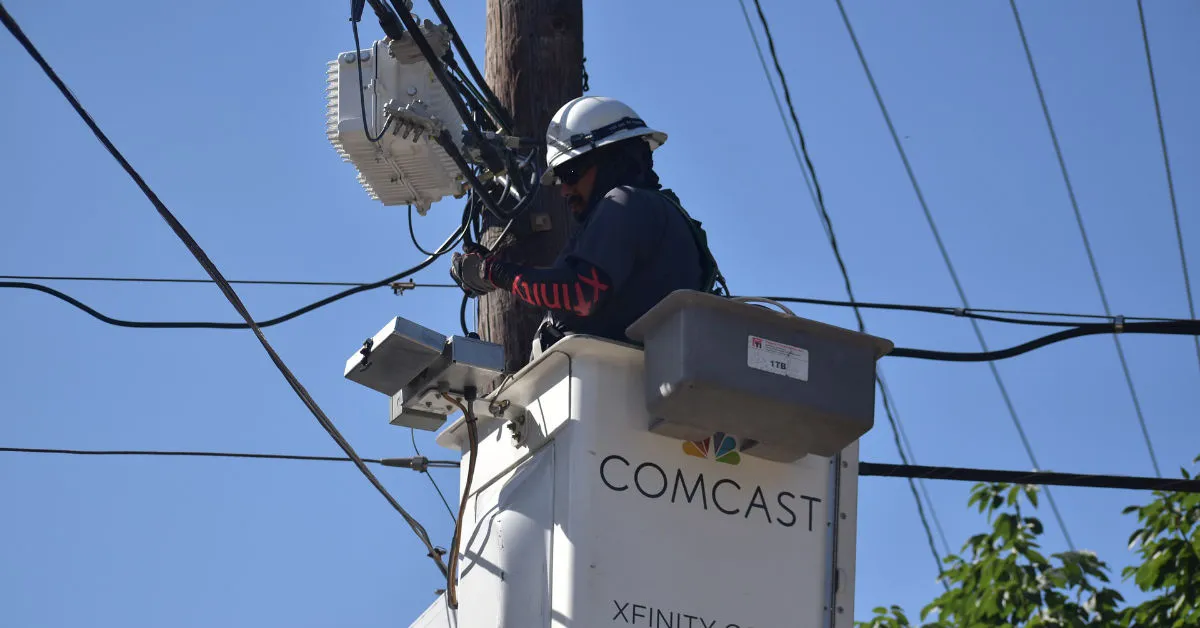
FCC Chairperson Jessica Rosenworcel thinks cable and satellite companies are a huge problem.
In March, Rosenworcel issued a public notice proposing a rule that would ban cable and satellite companies from hiding programming-related fees in customer bills. Last month, Rosenworcel suggested another rule that would force cable and satellite providers to issue refunds to customers if their channels are dropped due to programming-related disputes, which are almost always caused by broadcasters demanding higher fees for their networks.
And on Tuesday, Rosenworcel set her sights on the cable and satellite industry once again with a proposal that would effectively ban pay television providers from charging early termination fees if customers break their contracts.
“No one wants to pay junk fees for something they don’t want or can’t use,” Rosenworcel said via press release on Tuesday. “When companies charge customers early termination fees, it limits their freedom to choose the service they want.”
Rosenworcel said the proposal was intended to “promote innovation and expand competition within the industry,” though it wasn’t immediately clear how it would have this effect.
For years, cable and satellite companies have offered lower TV rates to customers who agree to stick with a provider for a set term — typically one or two years. As part of the deal, service providers typically offer additional perks like free installation of satellite dishes and upgraded set-top boxes with DVR functions.
Most companies don’t require customers to accept a service contract in order to take advantage of their pay TV product. But many customers do, because fees associated with programming, installation and equipment rental can be significantly higher if they don’t.
In recent times, cable companies have started to move away from service contracts, offering customers an additional way to save money: By bundling their TV service with another product like broadband Internet or wireless phone. But the country’s two main satellite TV providers — Dish Network and DirecTV — still rely on contracts to offset costs associated with installing a satellite dish and other equipment.

Even when a customer signs a contract, cable and satellite companies are usually lenient about whether to charge early termination fees. Companies have been known to end contracts without charging a fee if customers move to an area where they don’t offer service, or into a building where installing a satellite dish isn’t possible. They also will waive early termination fees based on other factors, like a medical emergency or loss of a loved one.
Still, cable and satellite companies are at a disadvantage compared to upstart streaming TV services like Fubo, Hulu with Live TV and YouTube TV that offer the same mix of entertainment, news and sports channels, but without a service contract to boot. Even some traditional pay TV companies have gotten into the streaming game: Dish Network owns Sling TV, while DirecTV has an online service that bears the same name.
But streaming services don’t have the same demands as cable and satellite companies: No technician is needed to run cable, or install a satellite dish, or activate service from a hub — streaming services work with the phones, tablets and smart TVs that are already present in a subscriber’s home. They also require a reliable broadband Internet connection, which many streaming customers already get from their cable and phone companies.
It isn’t clear if Rosenworcel or anyone at the FCC consulted with executives within the pay TV industry before the proposal was announced on Tuesday. But Rosenworcel firmly believes that traditional cable and satellite companies are on equal footing with streaming upstarts — and if streaming services can offer a product without a contract, why can’t cable and satellite companies do the same?
In addition to eliminating early termination fees, Rosenworcel’s proposal would also take a look at whether cable and satellite TV companies should be forced to terminate service immediately, rather than wait until the end of a customer’s billing cycle.
“Billing cycle fees require TV video service subscribers to pay for a complete billing cycle even if the subscriber terminates service prior to the end of that billing cycle,” a spokesperson for the FCC said on Tuesday. “These fees penalize consumers for terminating service by requiring them to pay for services they choose not to receive.”
In this respect, cable and satellite companies have something else in common with streaming services: All of the major online TV providers offer their products on a prepaid basis, and few of them offer refunds for service paid in advance, even if a customer makes it clear they want to stop their service early.
Curiously, while Rosenworcel’s proposal would almost certainly require cable and satellite companies to issue refunds and terminate a customer’s service the day they request it, the same wouldn’t be true for their streaming competitors, which would still be allowed to keep 100 percent of what a customer paid, even if they ended their service early.
The proposal now goes before the full FCC Board of Commissioners. If the proposal goes through, the next step would be to receive comments from the public before a second round of voting on the issue.